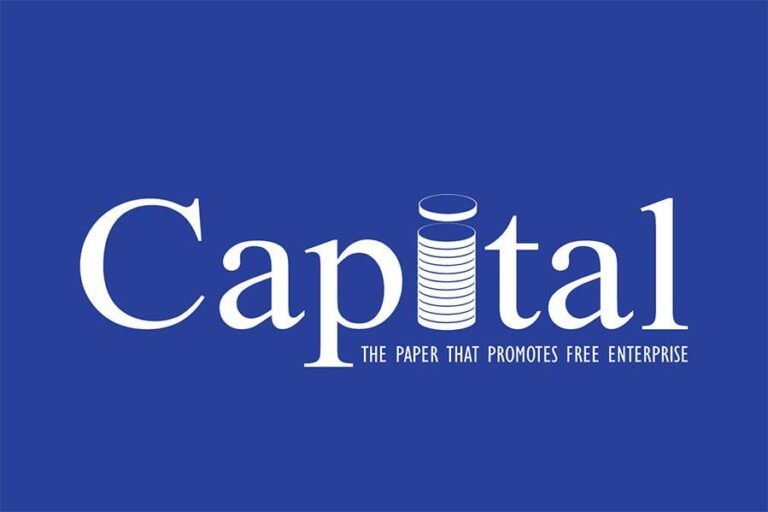I got some kind of moral vindication when I heard a segment of the light railroad would be taken down soon. The remaining lines have hardly any future either- considering top gun PPs have characterized them as ‘crimes against the aesthetics of 21 C century urban architecture’.
You know why? Because the memory is still fresh and families affected by the ill-advised venture are still paying the price in the name of ‘public interest’. Again refresh my memory for me, who was the Minister Urban Development and Construction back then? Makes me wonder…
However it would be utterly unrealistic to totally deny the significance of the light railway. Let us not forget Afro-centric themed media outlets to this day advertise it as a symbol of the new face of Africa.
Now the ever witty Addis folks are saying stuff like they are ditching cabs and buses to take the ‘epic’ train ride as its days are numbered. ‘At least we need a memory to share with our kids when we grow older,’ they muse and for some reason it makes me ponder the fate of the ‘Corridor Developments’ ventures after two years when a new government will be sworn in.
1-‘It wasn’t me!’
Decades ago EPRDF concocted a breakthrough secret to eternal prosperity and summarized it in few words to us- ‘harvesting surface water’. It was propagated in such noble terms that it was considered a hallowed subject to counter. We shook our heads in disgust at our forefathers for not being able to figure this out in the three thousand years of their civilization…until we were flooded with breaking news of malaria epidemic a few years later, that is.
The problem with impulsive development ventures is they tend to be little integrated in to the fabrics of the overall economy. Who wouldn’t be happy if the all season, back to back, extensive wheat farming is indeed sustainable and Ethiopia becomes a net exporter of the produce? The very idea is noble and I am glad FAO had extended its admiration for it, however, folks at FAO also know of another wheat farming adventure in their host country close to a hundred years ago. It didn’t work out.
Just like in the song lyrics, this is the defense የለዉጡ መንግስት comes up with whenever it screws up something big time. It wasn’t me!’ PP would have earned our respect had it tried to make Addis Light Railway a success story against all odds. If and when it fails the incumbent is collectively and individually responsible for the consequences as they have committed three generations of Ethiopians in perpetual debt to the Chinese.
2- The reclusive macro economy team members
Fold your sleeves, tuck in your shirts and come out in to the open public space and tell us what you are doing. You owe it to us as you are messing our lives big time, the least you could do is ‘explaining it to us’. We might understand you know.
Implicitly we know what you are going to say in your defense, ‘why even officials of the US government sometimes screw up’. They certainly do but they are accountable, they have the gut and the courage to appear before Congressional Committees and tell their side of the story. I know the Parliament doesn’t have the appetite to bother hard pressed officials busy running the government but you have taken a solemn oath to be true to your conscience as well. Yeah we have occasionally heard from the junior partners of the team but they were hardly convincing and sounded more like mouthpieces.
So what we do, we hold the likes of Kibur Genna, Zemedeneh Nigatu, Alemayehu Areda and Constatine Berhe accountable to us- in their capacity as Ethiopians- and literally demand them to explain to us ‘what the government is up to’. God bless them, they don’t hesitate to oblige.
3- Blame it on the Usual Suspect!
The one thing I like about this government is it has got this huge capacity to absorb shocks. The public may scream its head off until its tonsil cracks but the incumbent has this raw thick hide to shrug it off taking solace in the trend that every dust eventually settles. I see little wisdom in it but it kinda makes me admire the majestic indifference.
Coming to think of it, the indifference emanates from this established African governance mentality-you can always blame any kind of dissatisfaction directed against the government on the usual suspect. Who is the usual suspect? Need I even dare to say it, of course the Eternal Enemies of Peace, Prosperity and Sovereignty.
One has to give it to the government. It has established so many public organs with so many ‘Vision, Mission and Values’ to accommodate diversity that we have lost count of them. I would dare anyone of them to explain to us why the Usual Suspects are all for the GERD but against the urban beautification project? What would you say to folks who sadly observe ‘ቤቱ አልቆመ ለፊንሽንጉ መባዝን…
What is the symbolic significance of kicking poor folks from the City Center? Wouldn’t that suggest shipping the poor to a mercato indigino ? How is that any different from busing the destitute of Addis to Kotebe during the Imperial era? How could one try to console the displaced ‘now you can come on weekends to visit the old place with your family’? On weekends, for God’s sake!
Personally I am not against developing the City centers; inner cities in every mega cities are dens of crime and veritable challenges to city administrations across the world. I stand to be corrected but I don’t remember any place where the poor are kicked out to make space for the glamor of the rich. I mean Harlem is in the greater Manhattan neighborhood, isn’t it?
We expected Mayor Adanech to explain to us the genesis and consequences of the project; instead the Premier came aboard and demonized the unconvinced in such mean terms as ‘prisoners of catacombs’. He heaped abuses on us saying we don’t have the slightest clue what a city is…and I was like neither do you, Sir. Your team is bending backwards trying to serve residents they hardly relate to. In all honesty, how could one serve folks he doesn’t relate to?
Not long ago Berhanu Nega had lectured us on the art of city governance. As I remember it, it was the exact opposite of what is being implemented. What I am trying to say is for a change, lending ear to the outcasts wouldn’t hurt in lieu of blaming every resistance on a handful of ‘ክልፍልፍ ጄነራሎች’ – that didn’t do the Dergue any good either.
4-A Narcissistic Government?
Bottom-line, when a government frequents contemplates its reflection in the water, it begins to make the ultimate descent from its Olympian heights. The silver lining to the foregoing is our government is preoccupied with beauty. በዉበት የተጠመደ መንግስት might not fail to understand the fact that beauty is in the eyes of the beholder and PP’s beauty might not be my joy forever.
God Bless. .
You can reach the writer via estefanoussamuel@yahoo.com






